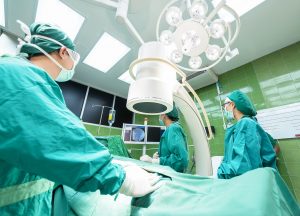
ダウンロード
場所
Deutsches Institut für Japanstudien
Jochi Kioizaka Bldg. 2F
7-1 Kioicho
Chiyoda-ku, Tokyo 102-0094
Japan
アクセス
Co-organizer
Dr. Susanne Brucksch
German Institute for Japanese Studies
Ass. Prof. Kaori Sasaki
Otaru University of Commerce
登録情報
Participation after advance registration only.
For any queries, please contact the organisers via email:
![]() brucksch@dijtokyo.org
brucksch@dijtokyo.org
DIJ Workshop
Humans & Machines in Medical Contexts: Case Studies from Japan
2017年3月31日
Please find the programme here (PDF).
Please find the outline, abstracts and CVs of participants of the workshop here (PDF).
Background
Medical instruments and technologies can be used to manipulate the human body, ranging from general devices with extremely low risk to such ones highly invasive to patients. Many technologies and electronic appliance nowadays in use took their roots in the second half of the 19th century, and were increasingly merged into clinics and hospitals during the following century. At present, there can be observed a thrust of technological progress at high pace in the field of biomedical engineering and medical informatics, which contribute additionally to new configurations in in the human-device interplay in Japan.
By the same token, new forms of knowledge production increasingly rely on the mechanical instruments and devices, which are applied for prevention, diagnostics, therapeutics, rehabilitation, curation of disorders and disease, or even bodily enhancement. Owing much to such developments, various routines in medical practices have been changing including surgical operations, management of patient data, and the organisation of national health systems. It is not only practitioners that face new dimensions of uncertainties but also lawmakers that have difficulties institutionalising appropriate rules, procedures and legal standards in order to reduce the risk of (fatal) medical errors.
Purpose
Whereas human-machines interaction has been allegedly studied in various disciplines in Japan – albeit within predominantly engineering, life sciences and natural sciences – the contributions by humanities and social sciences seem to converge upon the fields of History of Medicine, Bioethics and Medical Anthropology. However, there obviously are limitations regarding the contributions by other disciplines of humanities and social sciences as well as occasions for academic exchange with engineering and natural sciences. We hence argue that currently there is still need for transdisciplinary research approaches to the field of study of Human & Machines in Medical Contexts within Japan.
Approaches
In order to explore the issues arising from the clinical practices vis-à-vis applications of the (then new) medical devices, the workshop casts light on their various aspects. The participants will address features regarding the historical, legal, socio-structural, engineering and bioethical conditions and consequences of the interplay between humans and medical technologies or instruments, respectively health care practices in contemporary Japan. Moreover, the participants will reflect on the different theoretical and methodological approaches that enables us to study human-technology interplay and discuss transdisciplinary approaches by using case studies from their own respective disciplines to illustrate the manifold facets of the field. We hence suggest this as a starting point to encourage scholarly exchange and joint research on this field.
発表
10時
Greetings by Prof. Dr. Franz Waldenberger, Director of DIJ
10時5分
Opening Remarks on the Basic Ideas of the Workshop
ズザンネ・ブルクシュ
10時20分
Session A: Policy and Innovation Efforts on Medical Devices
Prof. emer. Christa Altenstetter
The City University of New York (CUNY)
Prof. Kazuo Tanishita
Waseda University
Discussant: Dr. Susanne Brucksch
11時20分
Short Break
11時半
Session B: Body Boundaries, Property Rights and Patient Data regarding Medical Devices
Prof. Masahiro Morioka
Waseda University
Ass. Prof. Kaori Sasaki
Otaru Universiy of Commerce
Prof. Yuji Shiroshita
Hokkaido University
Discussant: Koichi Mikami, Ph.D., The University of Edinburgh
13時
Lunch Break
14時
Session C: Ontology and Human-Machine Interaction: The Case of ALS and Cyborg-type Robot HAL
Yumiko Kawaguchi, Ph.D.
Director of the Japan ALS Association (JALSA)
Dr. Takashi Nakajima
Niigata National Hospital
Discussant: Dr. Celia Spoden, University of Düsseldorf
15時
Short Break
15時15分
Session D: History on Instruments, Technology and Medical Practices
Shi-Lin Loh, Ph.D.
Harvard University, Keio University
Maika Nakao, Ph.D.
Ritsumeikan University
Discussant: Ass. Prof. Kaori Sasaki, Otaru University of Commerce
16時15分
Coffee Break
16時45分
Reflecting Remarks
Prof. Akihito Suzuki
Keio University
Prof. Kazuo Tanishita
Waseda University
17時15分
Joint discussion by participants
Moderation: Dr. Susanne Brucksch